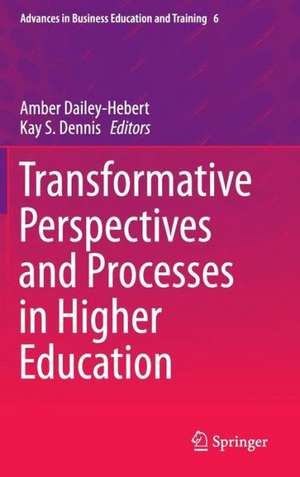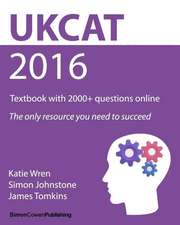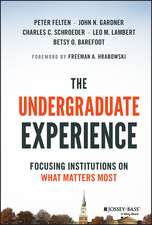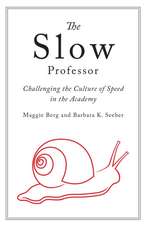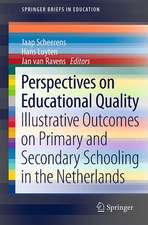Transformative Perspectives and Processes in Higher Education: Advances in Business Education and Training, cartea 6
Editat de Amber Dailey-Hebert, Kay S. Dennisen Limba Engleză Hardback – 24 noi 2014
| Toate formatele și edițiile | Preț | Express |
|---|---|---|
| Paperback (1) | 386.61 lei 6-8 săpt. | |
| Springer International Publishing – 22 sep 2016 | 386.61 lei 6-8 săpt. | |
| Hardback (1) | 393.90 lei 6-8 săpt. | |
| Springer International Publishing – 24 noi 2014 | 393.90 lei 6-8 săpt. |
Preț: 393.90 lei
Nou
Puncte Express: 591
Preț estimativ în valută:
75.37€ • 78.69$ • 62.38£
75.37€ • 78.69$ • 62.38£
Carte tipărită la comandă
Livrare economică 05-19 aprilie
Preluare comenzi: 021 569.72.76
Specificații
ISBN-13: 9783319092461
ISBN-10: 3319092464
Pagini: 210
Ilustrații: XII, 253 p. 8 illus.
Dimensiuni: 155 x 235 x 20 mm
Greutate: 0.55 kg
Ediția:2015
Editura: Springer International Publishing
Colecția Springer
Seria Advances in Business Education and Training
Locul publicării:Cham, Switzerland
ISBN-10: 3319092464
Pagini: 210
Ilustrații: XII, 253 p. 8 illus.
Dimensiuni: 155 x 235 x 20 mm
Greutate: 0.55 kg
Ediția:2015
Editura: Springer International Publishing
Colecția Springer
Seria Advances in Business Education and Training
Locul publicării:Cham, Switzerland
Public țintă
ResearchCuprins
1. Introduction: New Opportunities for Development?; Amber Dailey-Hebert and Kay S. Dennis.- Part I: Higher Education Redefined and Broadened.- 2. The Impetus for Change: Why Entrepreneurial Universities will Transform the Future (While Others Will Cease to Exist); Richard Milter.- 3. Challenging the Status Quo: The Influence of Proprietary Learning Institutions on the Shifting Landscape of Higher Education; B. Jean Mandernach, Hank Radda, Scott Greenberger and Krista Forrest.- 4. Heutagogy, Technology, and Lifelong Learning for Professional and Part-Time Learners; Lisa Marie Blaschke and Stewart Hase.- 5. What Can Higher Education Learn from the Workplace?; David Boud and Donna Rooney.- 6. From Envisioning to Managing Educational Development and Organizational Innovation; Katerina Bohle-Carbonell and Amber Dailey-Hebert.- Part II: Curricular Transformations.- 7. Making Students Responsible for Their Learning: Empowering Learners to Build Shared Mental Models; Herco Fonteijn.- 8. Bringing Learning to the Workplace: A Smartphone App for Reflection and Increased Authenticity of Learning; Karen Könings and Wim Gijselaers.- 9. From Challenge to Advantage: Innovating the Curriculum Across Geographic Boundaries; Natalia Timus.- 10. The Potential of Communities of Learning for Dual Career PhD Programs – A Case Study; Martin Rehm and Mindel van de Laar.- 11. Recommendations from Instructors for Adopting Successful Online Learning; Maike Gerken and Therese Grohnert.- Part III: Looking Ahead: Learning in the Future.- 12. Higher Education Shaping the Unscripted Future: The Imperative to Affirm Human Values in Transformative Times; Laurie N. DiPadova-Stocks.- 13. Higher Education 3.0: Knowmads Create Their Own Value!; John W. Moravec and Ronald van den Hoff.- 14. Transformative Perspectives and Processes in Higher Education: Concluding Thoughts; Kay S.Dennis and Amber Dailey-Hebert.
Textul de pe ultima copertă
This book aims to provide insight into the complexities confronting higher education today and to highlight tangible opportunities that exist to address such issues. We are in a constant state of flux, and higher education needs to respond in more proactive, intentional, and innovative ways to remain a relevant cornerstone to society and culture. The editors begin by asking how our collective reality might change if the complexity and uncertainty surrounding us were embraced and leveraged to serve the learner and society as a whole. They invite the reader to explore collaborative approaches to individualized learning pathways, networked learning, and a reimagined ecosystem of academia. The chapters are arranged to inform the reader seeking knowledge on how to 1) reshape and redefine the 21st century university, with its evolving role in these transformative times; 2) design and implement courses that address the changing needs of the university and the non-traditional student; and 3) utilize research on innovative strategies with processes that promote organizational learning. The chapters profile the fluid nature of learning as it evolves in higher education and the workplace, often with a blurred line separating the two environments. Exciting ideas related to heutagogy, problem-based learning, innovative constructivist strategies, authentic learning, and self-regulated learning all converge in this volume.
Caracteristici
Blends research and practice in capacity development at the individual and organizational level Provides lessons for organizational innovations through a review of project structures, processes and perspectives on all levels Discusses how change can be managed, what the outcome of this change can be and why higher education needs to change Includes contributions from American and European researchers Includes supplementary material: sn.pub/extras
